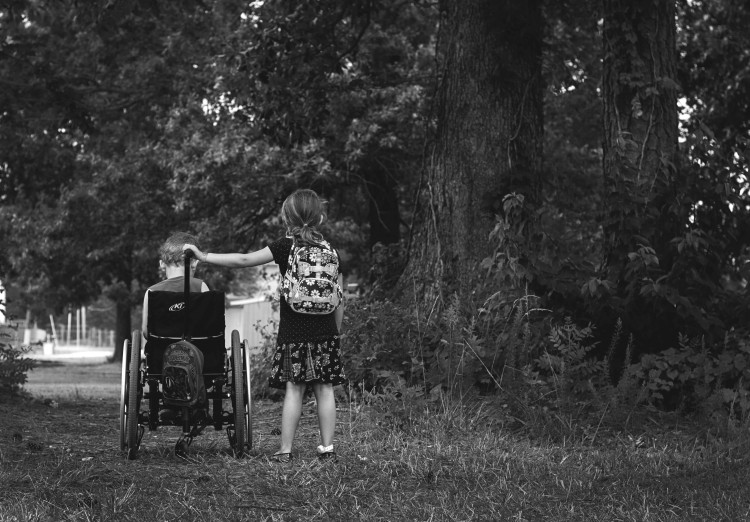Why Lists of Things Not to Say to People With Disabilities May Do More Harm Than Good
Every day I turn on my computer I am met with the same thing. In one form or another, someone is presenting a blog aimed at telling people a list of things they should not say to someone who is disabled, or to a parent of a child with a disability. They get passed around quickly, eaten up with the camaraderie people crave so deeply. They are haphazardly added to the list of “good reads” one can easily relate to. But I think they can be more harmful than good, and here is why.
As a young woman with multiple disabilities and the mother of several children who also live with multiple disabilities, we are no strangers to the off-color and sometimes hurtful comments strangers and even friends and loved ones can make unintentionally during conversation. There have been plenty of times over the years when I have been left in tears from a well-meaning person who just did not know better when they offered me an earful of what they thought was positivity and support. It is true people who have not shared similar experiences can often miss the mark without even realizing they are saying something that could be potentially damaging to your feelings, and of course it hurts. It is only natural to want to fix that for the masses and to save someone else from experiencing that same scenario.
Even if I agree with all of the items on notorious lists of things not to say, I can only think of one occasion that I actually shared one with friends. That particular post pertained to grieving parents, and it was all common sense and words most of my grieving friends had trouble finding themselves in all of their pain. It was written with an emotional appeal about why a grieving parent truthfully could not handle hearing certain clichés and was written from a very raw perspective many will hopefully never have to face. Many of these lists, however, whether the author intended this or not, have an accusatory undertone and can widen the gap between those with disability and those without. They often contain a lot of “you” statements, and instead of explaining the emotional sentiment behind not being able to hear certain comments, many times they seem to call the reader out for their mistake and shame them for making it.
Where this becomes the biggest concern to me is the fact that we as a community are trying our best to bridge the gap. We are always trying to remind others we are the same despite our disabilities. We spend our time preaching about how we wish people would ask questions instead of acting uncomfortable around us. We ask that they make normal human conversation instead of pointing and staring. We plead that they don’t leave our children out of activities everyone else is invited to. How are we going to succeed in any of those areas when we are constantly writing open letters containing lists of things they shouldn’t say or do, and giving them the concern that they need to walk on eggshells around our families?
I am not in any way saying I disagree with what these lists are suggesting people don’t say. For the most part, I have agreed with about 75 percent of them and have been hurt by most of those very statements unintentionally. My concern is that these types of pieces may be setting us back in what we as a community are trying to accomplish. I believe they are all but demanding people tiptoe around us.
I have not been disabled my whole life, and there was a point when I was somewhat uncomfortable around people who had disabilities. It wasn’t because I felt there was anything wrong with those affected by disability, but I was very afraid of saying or doing the wrong thing. I was curious about their circumstances and had a strong desire to befriend them just like anyone else, but I remember a huge anxiety burning deep inside of me that I would say or do something that would hurt their feelings, because I simply didn’t know what to say. Reading a post called “10 Things to Never Say to a Child With Special Needs” with inflammatory and sarcastic undertones would not have helped to ease my anxiety at all. It would have caused me to clam up and give up.
I feel these posts would be much more effective at getting their point across if they gave examples of what to say or do and not what to avoid. There are always going to be those who hurt you without meaning it, and some who just don’t care. For those who do care, let’s show them we care by not treating them as if they have already done something wrong. Telling someone not to do something can cause them to take a personal inventory and concern that they may have done something to hurt you, which isn’t fair. Instead, let’s give them the tools they can use to truly be the friend or family member you need.

The Mighty is asking the following: What’s one commonly held opinion within the community surrounding your disability and/or disease (or a loved one’s) that doesn’t resonate with you? If you’d like to participate, please send a blog post to community@themighty.com. Please include a photo for the piece, a photo of yourself and 1-2 sentence bio. Check out our Submit a Story page for more about our submission guidelines.
